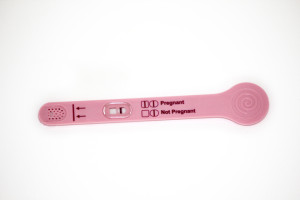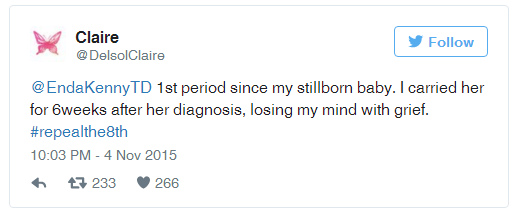Marriage Equality was achieved in Ireland in 2015 in a referendum attracting a great deal of attention in Europe. But another human rights issue still remains unsolved: abortion rights.
2015 has been a good year for Ireland; our much lauded economic recovery and the landslide victory in favour of marriage equality were widely picked up in the international media. However, one niggling human rights issue keeps rearing its complex head much to the displeasure of Enda Kenny, the Taoiseach or Prime Minister of Ireland. There is no glossing over Ireland’s archaic abortion laws which criminalise the act of abortion. The issue was catapulted to the forefront of the Irish psyche after the death of Savita Halappanavar in 2012 and a further series of tragic cases including the Miss Y and PP v HSE cases in 2014. Savita’s death was later determined to be due to a septic miscarriage, which was caused, in part, by failure to terminate her pregnancy despite the fact that she had requested an abortion and that Irish precedent (the X Case) had already provided for terminations when the life of the mother is at risk. It led to fresh calls to legislate for the X Case. It also gave impetus to pro-choice campaigners who want to see the introduction of abortion on demand in Ireland and a repeal of the 8th Amendment to the Constitution which passed into law via referendum in 1983 and enshrines the equal right to life of the unborn child (#repealthe8th). Ireland did introduce the required legislation aptly named the Protection of Life During Pregnancy Act 2013, a much criticised piece of statute, but no move was made to hold a referendum
‘Taking the boat’
In 2014, the case of Miss Y, a suicidal survivor of rape who had claimed asylum in Ireland was denied an abortion under the Act and was arrested when she tried to enter the UK to try and obtain an abortion. The case served to highlight not only flaws in the Act but also the plight of women who make the journey to the UK in order to obtain abortions. Ireland has essentially been outsourcing its abortions to the UK, not legally permitting abortions but altering the Constitution through a number of amendments, which allow for women to travel for abortions and to receive information about abortions in other states. It is estimated that thousands of women make the trip to the UK every year, an often lonely journey known colloquially as ‘taking the boat’. Those who can’t make the trip due to poverty, lack of support and information and migration status are left with little choice. Those who do make the trip are often afraid to tell anyone upon return, even their own GP and often receive no follow-up care as a result.
Ireland’s human rights record at the UN
In the past, Ireland has received a number of recommendations from UN human rights bodies regarding abortion, recommendations which were again reiterated this year when Ireland came before the United Nations Committee on Economic, Social and Cultural Rights. The recommendations call on Ireland to hold a referendum on abortion. In 2014, the Chair of the UN Human Rights Committee famously accused Ireland of treating women who became pregnant through rape as ‘nothing more than a vessel’. Anti-abortion campaigners often argue that there is no right to abortion laid down under International Human Rights Law.
They are technically right: it is not enumerated in any of the human rights conventions. But it is clear from the jurisprudence of the UN treaty bodies that the right to access abortion is implicit in other rights such as the right to health, the right to be free from cruel, inhumane, degrading treatment, the rights to privacy and to physical integrity, among others. The Irish Human Rights and Equality Commission has also come out, in light of Ireland’s forthcoming review under the Universal Periodic Review mechanism, with its strongest position on abortion yet endorsing the UN recommendations, a rather courageous move given that their mandate lies precariously between our Constitution and divergent International Human Rights Law.
Brave women and men turn the tide
This year has seen a number of high profile individuals stepping into the debate, including women who recounted their own abortions in order to reduce stigma and some are also coming forward to move the narrative away from the so called ‘hard cases’. A popular columnist wrote about her decision to have an abortion at a time in her life when she was not ready for a child. A famous Irish writer and director and his wife talked about their experience, of a pregnancy with a foetus which had a 100% mortality rate. They spoke about their decision to have an abortion in the UK in a video to support Amnesty International’s ongoing campaign (#sheisnotacriminal) to have abortion decriminalised in Ireland. Now many other ordinary women are coming forward and identifying themselves as women who have made the choice to abort. The Xile Project, launched on International Human Rights Day, showed pictures of 11 women who had had an abortion in order to put faces on the many women who seek abortions in the UK every year. A recent court case in favour of abortion in Northern Ireland, where abortion laws are also restrictive, is also evidence of the turning of the tide on the island.
No escape – menstrual tweets and political peer pressure
The Labour Party has put a referendum on its political agenda and has been pushing the issue to the forefront despite evident reluctance from others. Following the marriage equality referendum, Prime Minister Enda Kenny stated that there would be no referendum on abortion during the lifetime of this government. He has also said that he does not believe that abortion on demand should be introduced. The women of Ireland were not going to take that lying down and, to the amusement of many, began tweeting our fair leader about their menstrual cycles given, they said, that he was so interested in the reproductive systems of Irish women.
This approach was particularly welcomed by pro-choice supporters, as that much like abortion, periods are also considered to be something to hide, particularly from men. Poor Enda just can’t escape the abortion issue and this latest stunt along with political pressure from within government prompted him to insist on a ‘Citizen’s Convention’ to discuss the matter, a politically deft move which buys him time and can be aligned with the current process to liberalise our Constitution. However, another Convention may well take any number of years, if the last Constitutional Convention – which resulted in the marriage equality referendum – is anything to go by. Many of the recommendations of the last Constitutional Convention have yet to even grace the ballot.
There are several simultaneous abortion conversations going on and the polls paint an uncertain picture – while the majority agree that abortion should be provided, the figure varies significantly depending on the circumstances, i.e. in cases of rape, incest, suicide, fatal foetal abnormality etc. In this respect, in a way Enda is right: there needs to be a way of discussing the possibilities of repealing the 8th Amendment and what this would mean in practice.
Religion, marriage equality and abortion
Many pro-choice campaigners over-simplify arguments against abortion, boiling them down to a religious hangover from Ireland’s time under the thumb of the Catholic Church. This is a mistake. It underestimates that for many people the idea that life begins at conception or at certain points during pregnancy is a genuinely held belief and a serious human rights concern which is not necessarily religious in nature. This is not the marriage equality referendum, abortion is still considered to be an uncomfortable and shameful thing in Irish society; a ‘yes’ in a referendum on abortion cannot be packaged into a palatable PR spin in the form of ‘love wins’. It is not all weddings, rainbow flags and lifelong loving commitment. It is for many, a hard, sometimes painful and lonely decision. The Catholic Church and others will no doubt mount a furious defense of Ireland’s abortion laws to rival that of its ‘No’ campaign against the marriage referendum, given that it symbolises one of the last vestiges of the church’s influence in Ireland. The sharing of women’s stories is a start but much more sensitisation is needed to underscore the real issues faced by woman when they find themselves pregnant when they don’t want to be. A referendum held too early without the right campaigning and preparation could fail, condemning the women of Ireland to another 30 year wait for their right to access safe and legal abortions in their own country.nched on International Human Rights Day, showed pictures of 11 women who had had an abortion in order to put faces on the many women who seek abortions in the UK every year. A recent court case in favour of abortion in Northern Ireland, where abortion laws are also restrictive, is also evidence of the turning of the tide on the island.
No escape – menstrual tweets and political peer pressure
The Labour Party has put a referendum on its political agenda and has been pushing the issue to the forefront despite evident reluctance from others. Following the marriage equality referendum, Prime Minister Enda Kenny stated that there would be no referendum on abortion during the lifetime of this government. He has also said that he does not believe that abortion on demand should be introduced. The women of Ireland were not going to take that lying down and, to the amusement of many, began tweeting our fair leader about their menstrual cycles given, they said, that he was so interested in the reproductive systems of Irish women.
This approach was particularly welcomed by pro-choice supporters, as that much like abortion, periods are also considered to be something to hide, particularly from men. Poor Enda just can’t escape the abortion issue and this latest stunt along with political pressure from within government prompted him to insist on a ‘Citizen’s Convention’ to discuss the matter, a politically deft move which buys him time and can be aligned with the current process to liberalise our Constitution. However, another Convention may well take any number of years, if the last Constitutional Convention – which resulted in the marriage equality referendum – is anything to go by. Many of the recommendations of the last Constitutional Convention have yet to even grace the ballot.
There are several simultaneous abortion conversations going on and the polls paint an uncertain picture – while the majority agree that abortion should be provided, the figure varies significantly depending on the circumstances, i.e. in cases of rape, incest, suicide, fatal foetal abnormality etc. In this respect, in a way Enda is right: there needs to be a way of discussing the possibilities of repealing the 8th Amendment and what this would mean in practice.





![The Cologne attacks: the media, the hypocrisy of politicians and what should be done next – Die Übergriffe in Köln: Reaktionen in den Medien, Politiker-Scheinheiligkeit und was jetzt getan werden muss [EN/DE]](https://www.youngfeminist.eu/wp-content/uploads/2016/02/headlineImage.adapt_.1460.high_.Cologne_01a.1452310253200-150x150.jpg)
![The ideal female body – does not exist! Ideali moters – figūra neegzistuoja! [EN/LT]](https://www.youngfeminist.eu/wp-content/uploads/2016/05/Three-Graces-Peter-Paul-Rubens-150x150.jpg)
[…] Ireland’s niggling Human Rights issue: abortion […]
Abortion is permitted in Ireland only when there is a risk to the life of a pregnant woman. In every other circumstance it is a serious crime. Since 1983, the Irish constitution has placed the “right to life of the unborn” on an equal footing with the right to life of the pregnant woman.